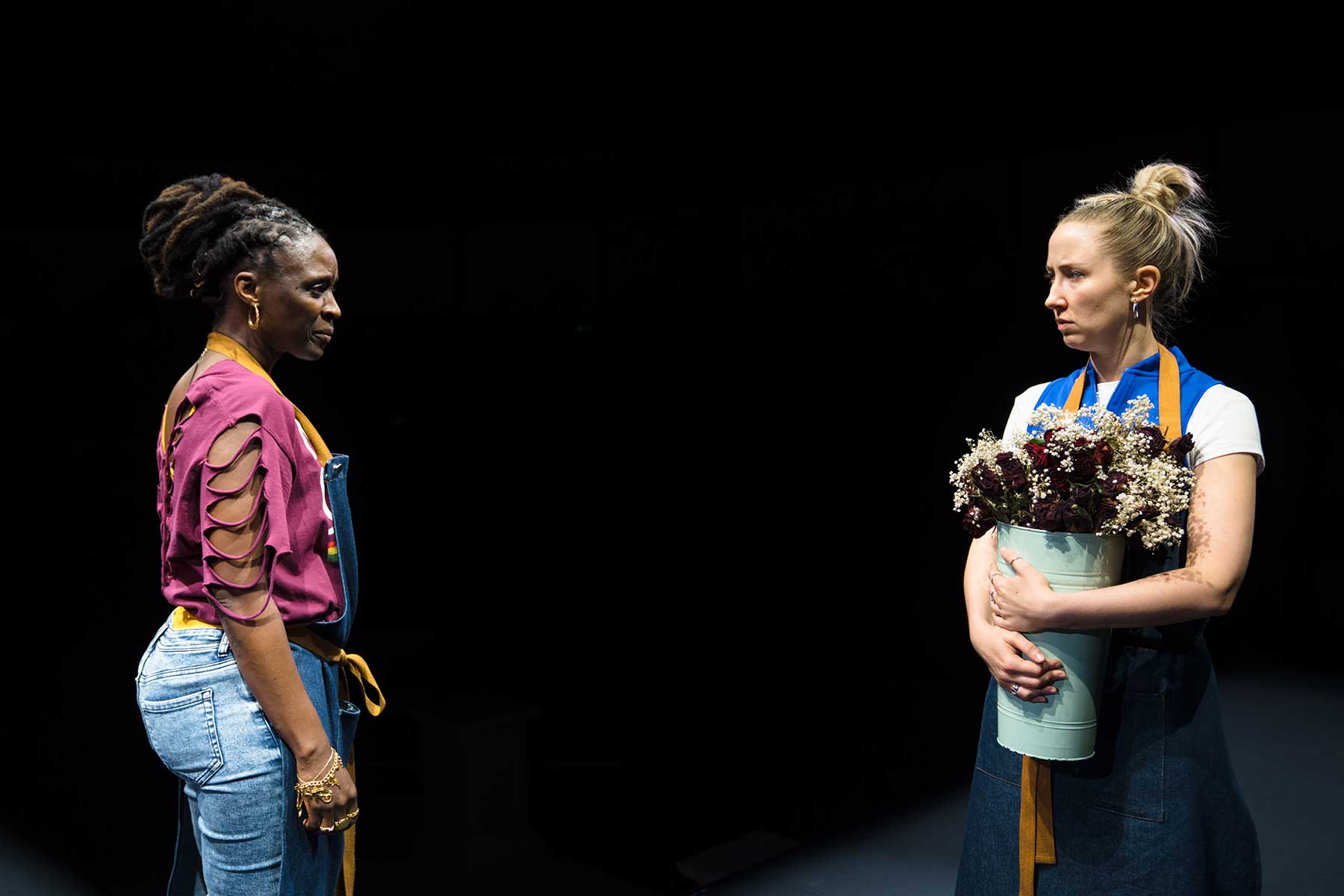
“Racial Tensions Fuel Anger, Hatred and Division” could have been a newspaper headline from earlier this summer when riots returned to the streets of England but it also could be a reasonable description of the premise of Death of England: Closing Time, the final part of the acclaimed
“Racial Tensions Fuel Anger, Hatred and Division” could have been a newspaper headline from earlier this summer when riots returned to the streets of England but it also could be a reasonable description of the premise of Death of England: Closing Time, the final part of the acclaimed Death of England trilogy written by Clint Dyer and Roy Williams. The timing of this play’s revival seems particularly pertinent for these troubled times and its central theme of black and white people living side-by-side, sometimes in harmony, sometimes in conflict, has never been more relevant.
The first play in the series, tells the story of Michael, a young white man dealing with the aftermath of his father’s death which forces him to confront the legacy of his father’s racist opinions, his own beliefs and prejudices and his evolving understanding of himself and those around him, particularly his lifelong friend, Delroy. The second play, Death of England: Delroy, follows Delroy as he is racially profiled and arrested while trying to attend the birth of his child with his partner Carly, Michael’s sister.
This event triggers a cascade of emotions and reflections on his place in society, his relationships and the way systemic racism impacts his life. The final play, Death of England: Closing Time tells the story from the point of view of Carly (Erin Doherty) and of Michael’s mother Denise (Sharon Duncan-Brewster). From the opening moments of the play you are in no doubt of its connection with its predecessors. The stage is the same, a raised platform in the shape of the cross of St George and the characters are introduced in several brief snippets accompanied by loud music and separated by darkness and silence, as was the case in Michael and Delroy.
The brilliance of the Death of England plays is how similar they are in structure and themes, exploring issues of identity, race and national consciousness, and yet so different that each play offers a unique perspective on these issues, delving into the personal struggles and evolving relationships of its characters against the backdrop of a changing Britain. Perhaps the biggest difference in Death of England: Closing Time is the story is told by two characters using a combination of monologues and dialogues, in contrast to the single-handed performances in the other two plays.
In this final instalment, the action takes place in a joint business that is part florist, run by Carly, and part Caribbean takeaway, run by Denise. The shop is now in the process of closing down and as the two women pack up belongings they examine their relationship, confronting their personal prejudices and differences head-on and ultimately find common ground amidst their past conflicts and misunderstandings.
Denise is not completely at ease with her son being in a relationship with a white woman and Carly, who on the surface wants to distance herself from her father’s racism, is shown to harbour latent racist views of her own which come out during a drunken hen party which is filmed and posted online.
The acting in Death of England: Closing Time is exceptional. Sharon Duncan-Brewster and Erin Doherty, who have great chemistry together, deliver performances that are captivating and richly layered, embodying the emotional depth and complexity of their characters with remarkable precision. Their ability to move seamlessly between moments of searing anger, profound vulnerability and sharp humour is extraordinary.
Clint Dyer‘s direction shows a skilful grasp of pacing, tension, and character dynamics, masterfully weaving together the play’s intense emotional scenes with its lighter, humorous moments. This deft balance creates a dynamic rhythm that ensures the audience remains captivated and immersed throughout the entire performance. The vivid characters he crafted with co-writer Roy Williams are one of the play’s most remarkable features. They have dialogue that feels authentic and engaging, bringing the characters to life as relatable people with whom the audience can connect.
The closing of the shop that is part florist and part takeaway, is a metaphor for the closing of one aspect of a relationship between two women and also the closing of an era of English society. It is also the beginning of a new era, the shop is to become a Gail’s bakery and despite all their differences, Denise and Carly are able to unite in their opposition to the gentrification of their part of England. No matter how deep and profound differences between people can be, there is always something we can look for to bring us together. It is a fitting conclusion to the trilogy and is a sentiment that we need in the world today. I highly recommend this play.
Related links


























